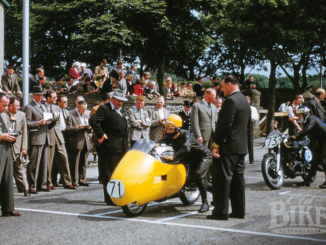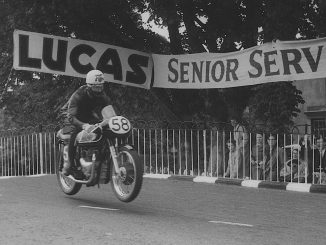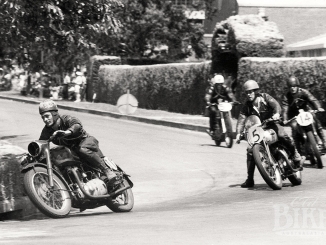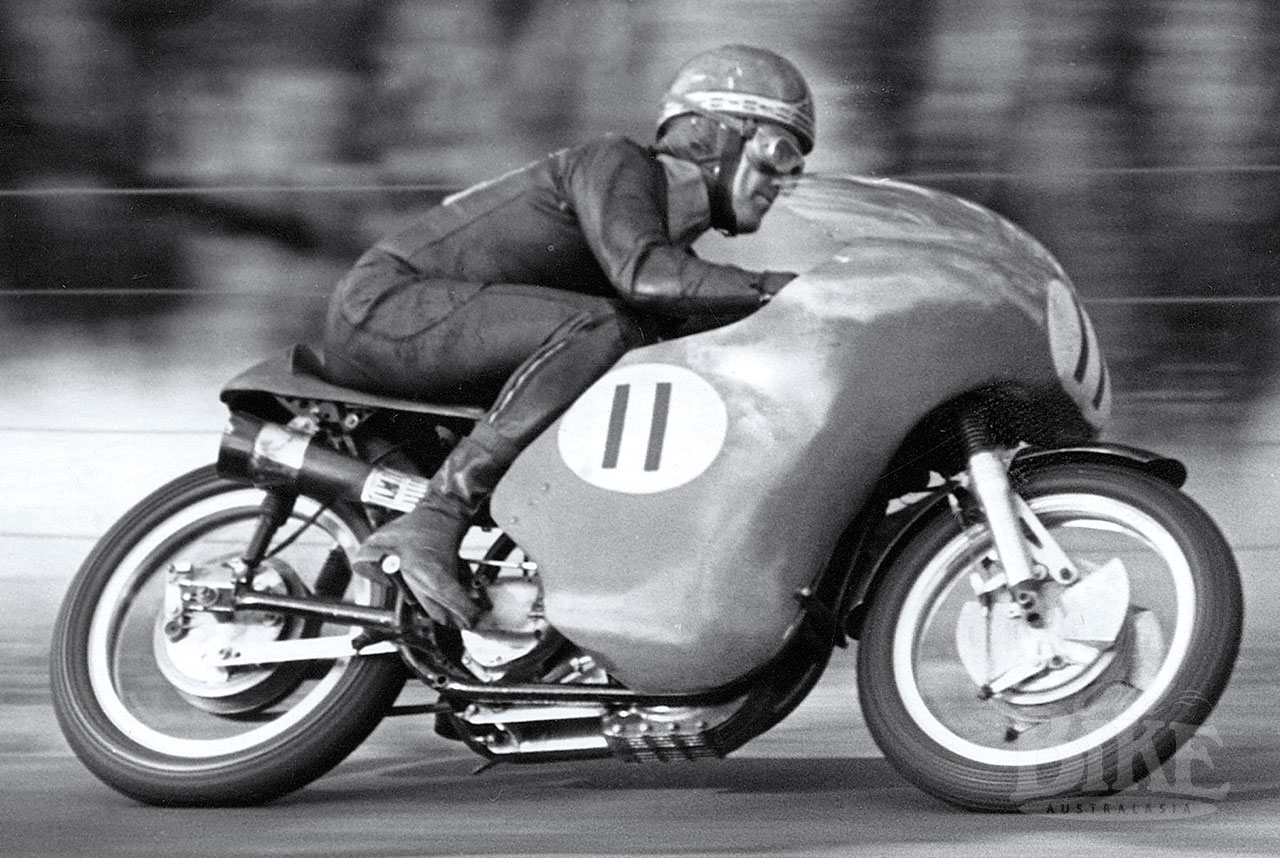
From our Old Bike Archives – Issue 66 – first published in 2017.
Story: Jim Scaysbrook • Photos: Dick Darby, Nev Stumbles, Richard Swinton, Michael Andrews, Chas Rice.
For some reason, the English press labelled Jack Ahearn, who passed away on 10th March 2017, aged 92, “Jolly Jack”, which is hard to fathom, because Jack was many things, but certainly not jolly. According to his friends in his adopted home town of Lismore, in his final hours Jack was still cussing the staff in his nursing home; the same hard-nosed, flint-hard mien that he had applied to countless race promoters and other unfortunates for decades.
Born in Bondi, Sydney, Jack moved with his parents to Lithgow while still a child. Although a carpenter by trade, Jack was a professional racer for virtually his entire working life, and worked out very early just what was required to earn a living. He rarely crashed, in fact he claimed to have fallen off only half a dozen times in his career (a statement that is easily disproved in hindsight), and said few of these accidents were his fault. He knew his worth to the often unscrupulous European race promoters, and drove hard deals for his start money. He needed to, because even with this uncompromising attitude, his income was barely enough to make ends meet.
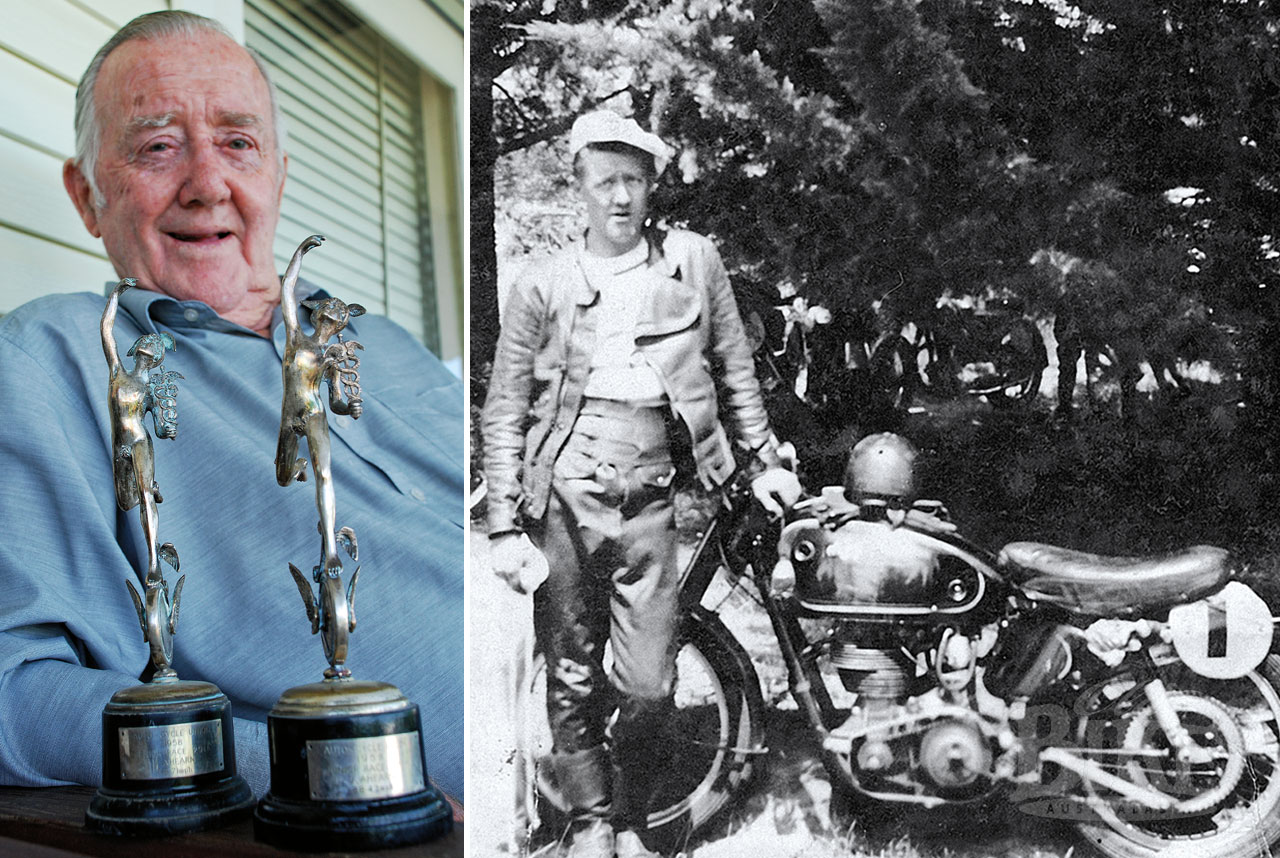
Like many others, Jack’s racing ambitions were stalled by WW2, but as soon as possible post-war, he was on the grid, riding a humble 350 Triumph Tiger 80. He rode in everything from scrambles, short circuit (“Miniature TT”), and the few road races on the calendar, and quickly realised he needed better equipment if he were to achieve his ambition of gaining a place in the Australian team at the Isle of Man TT. In the post-war years he rode a 7R AJS purchased from Eric McPherson, an ex-works 350cc Velocette, and a well-worn ex-Art Senior 500 Norton, with some success. A crash at Bathurst in 1951 left him with a pair of broken wrists, which sidelined him for a while but gave him time to save up for a new Manx Norton and to reaffirm his mantra of going fast enough to finish and to avoid crashing at all costs. In 1954 he gained the coveted nomination for the official Australian team to the TT, and justified his selection by posting the best result of the team’s three riders with a highly respectable ninth place in the rain-shortened Senior TT riding a Norton loaned to him for the season by fellow Aussie Jack Forrest. 21 years later he completed his final TT, the 1975 Production TT where he finished 24th on a 400 Honda. His best IoM result was 4th in the 1966 Junior, and he also became the first Australian to achieve a 100 mph lap when he recorded 100.5 mph (161.9 km/h) in practice for the 1963 Senior.
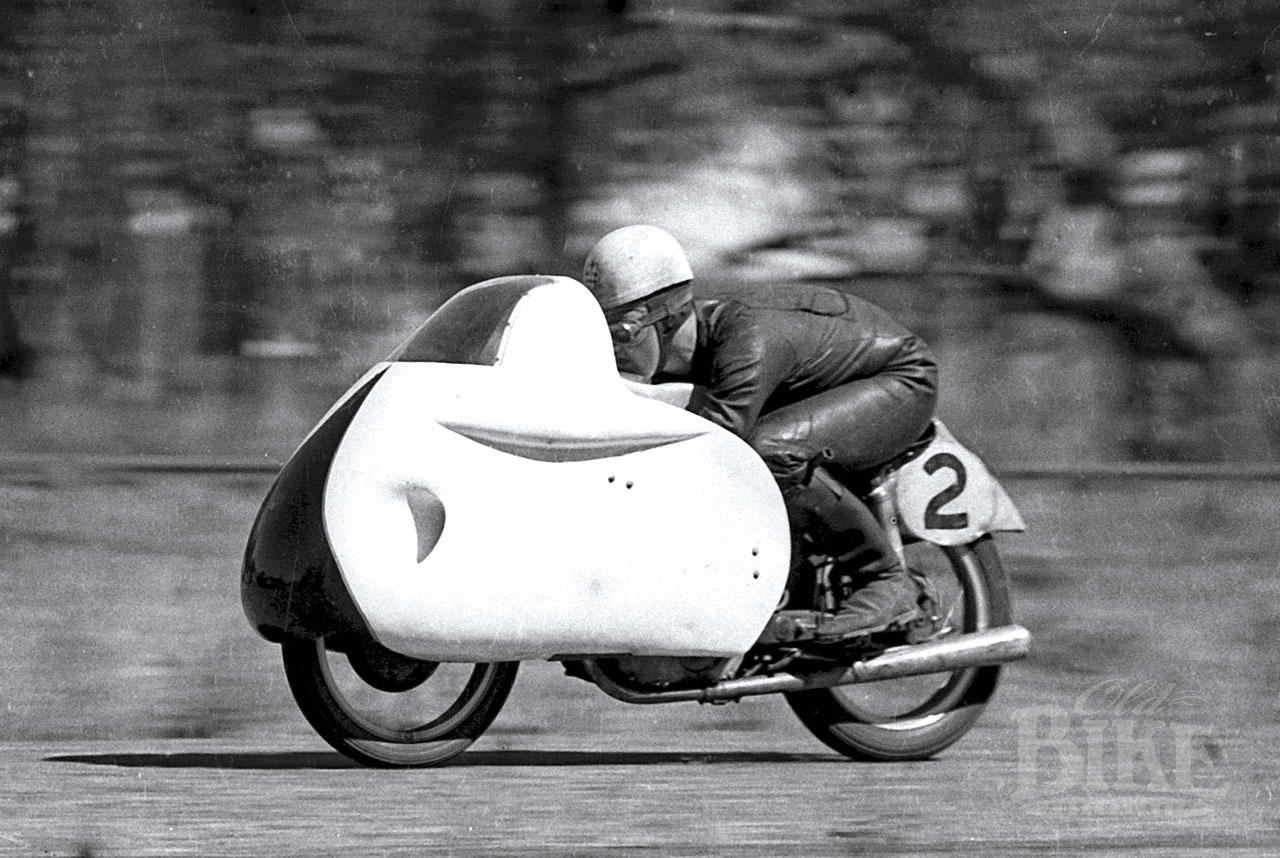
His famous stoushes with officials came to a head at the infamous Dutch TT of 1955, when he was banned from international racing for taking part in the “riders strike” (see OBA 55). With no International licence for the first six months of 1956, Jack was marooned back in Australia, contemplating his future. In between driving taxis, Jack took his pair of Manx Nortons to whatever meetings he could afford, and at Bathurst in 1957 became only the second rider to score a ‘treble’ by taking out the Lightweight, Junior and Senior races. But the time spent at home had failed to cure him of the wanderlust, and by early 1958 he and wife Betty were on the high seas again, bound for England. Jack had come to an arrangement with the AMC factory whereby he would receive a 350cc 7R AJS and assist with the development of the new 500cc Matchless G50 – a works ride at last. His debut on the G50, which was still in the experimental stage, was in the 1958 Senior TT, where he struggled to 29th place with a disintegrating gearbox.
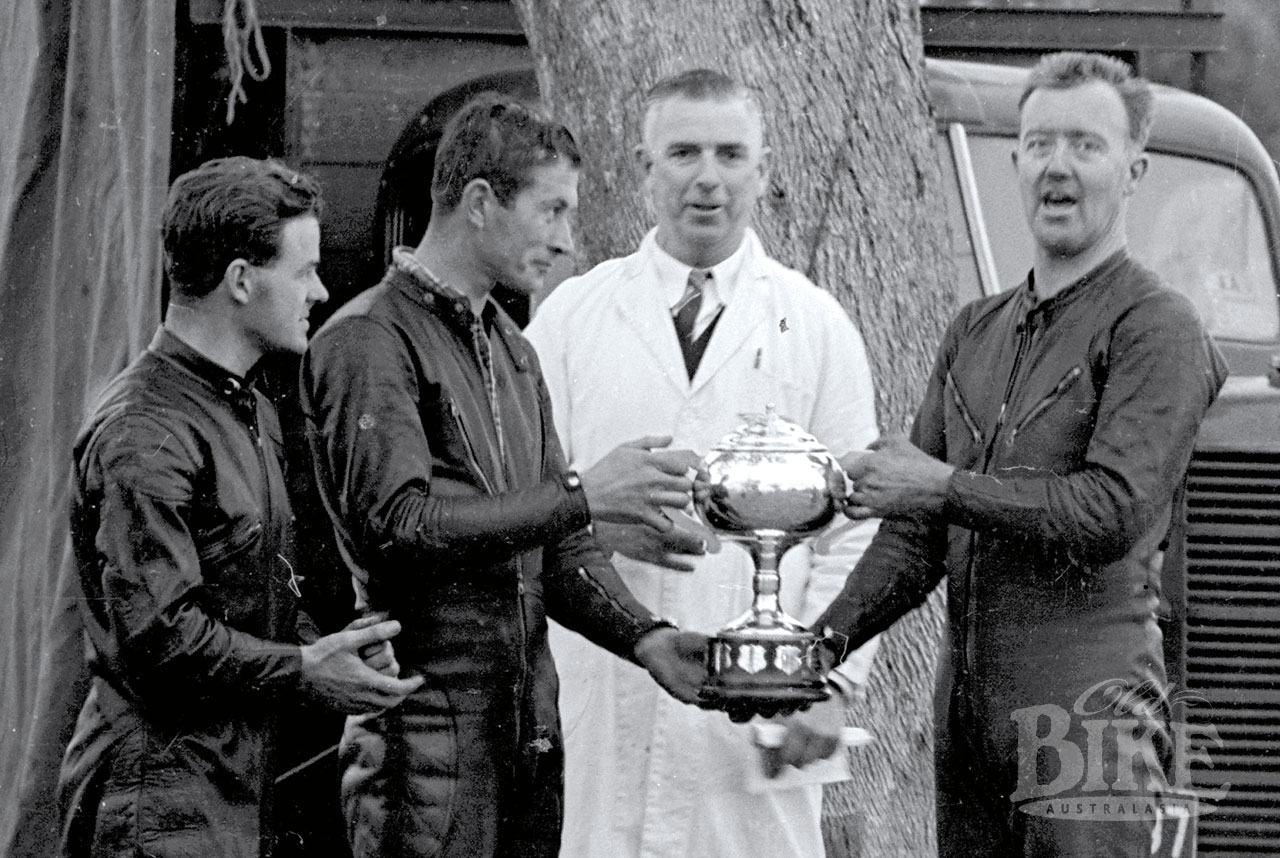
Returning home at the end of a fairly disappointing season, it seemed Jack’s European adventure had finally run its course. With the British factories drifting inexorably towards oblivion and the Italian works teams (with the exception of MV Agusta) pulling out of racing at the end of 1957, the whole face of international sport was changing. At 34 years of age, Jack was no longer a fired-up youngster, and for the next four years he settled into something resembling a normal life, confining himself to various races around Australia. Not that he was idle; he collected a bunch of Australian Speed Records at Coonabarabran, and took out the coveted Bathurst Senior three years on the trot 1959-1961. But by 1962 he could no longer resist the temptation to chance his arm again in Europe, and set off once again to collect a pair of new Nortons. Picking up where he left off, he again represented Australia at the TT, finishing 12th in the Junior. As he nudged 40 years of age, Jack seemed to be riding better than ever, to the point that he was given a trial on the Geoff Duke-run Gilera 500 squad at Monza.
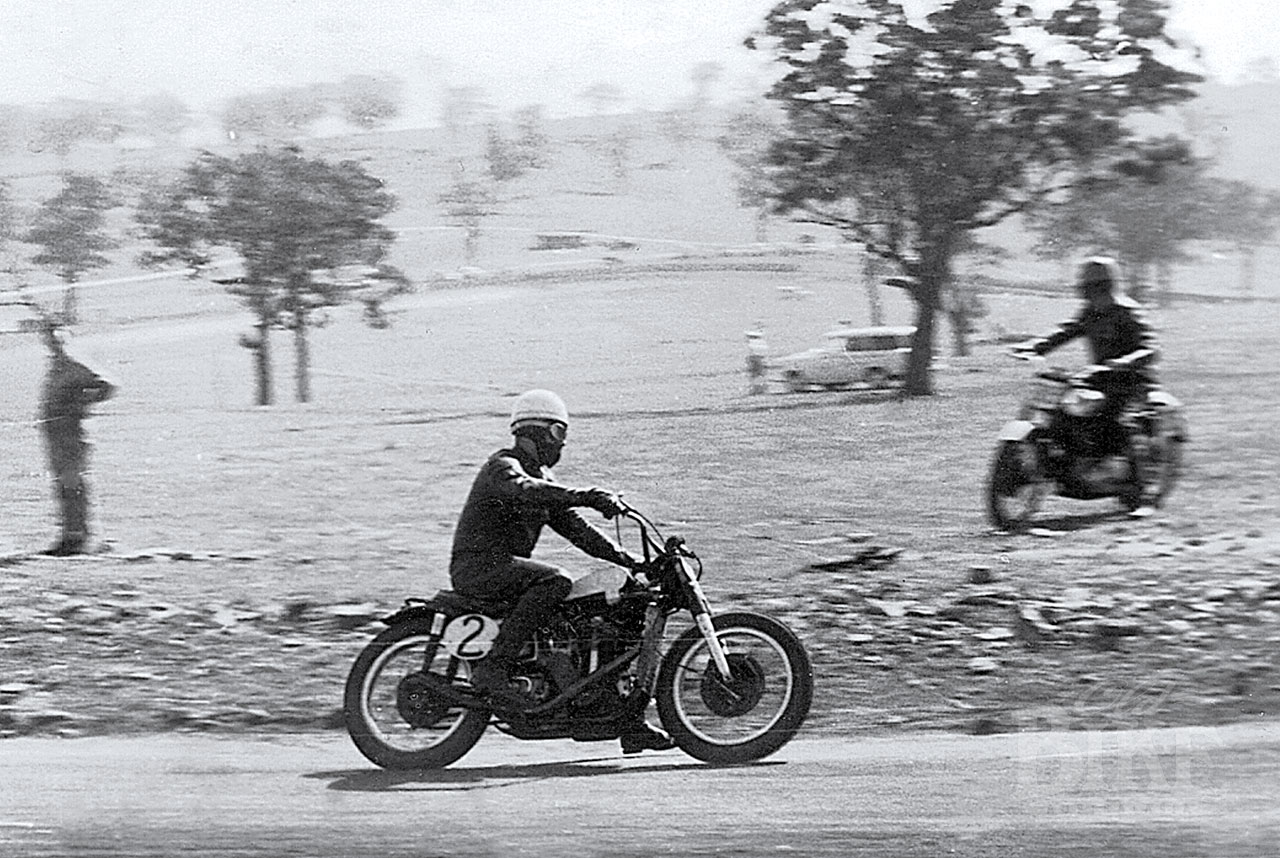
Then in 1964 Suzuki offered him a ride on the fast but flawed four-cylinder 250 – a motorcycle that Jack said was the best he ever rode. He took things carefully during TT practice, running in the Suzuki and getting the mixture correct, but crashed on a damp patch in the race and ended up in Nobles Hospital with a head injury. But despite this setback, 1964 was Jack’s best-ever year, scoring his first and only 500cc Grand Prix win in Finland, and finishing runner-up to Mike Hailwood’s all-conquering MV in the 500cc World Championship. He called time on his international career at the end of 1966 and headed home. For the first time in his life Jack had a ‘real’ job, running his own motorcycle business on Victoria Road, West Ryde, as well as continuing to race locally, and quite successfully too. The pressure of running the shop did not sit well with him however, and he soon sold it to industry personality and part-time actor Lester Morris. To occupy his time, and make ends meet, Jack began a casual working relationship with car dealer Chris Mitchell, creating a friendship that endured the rest of his life. “He was the best salesman I ever had,” says Chris, “provided he showed up for work, which he sometimes did not.”
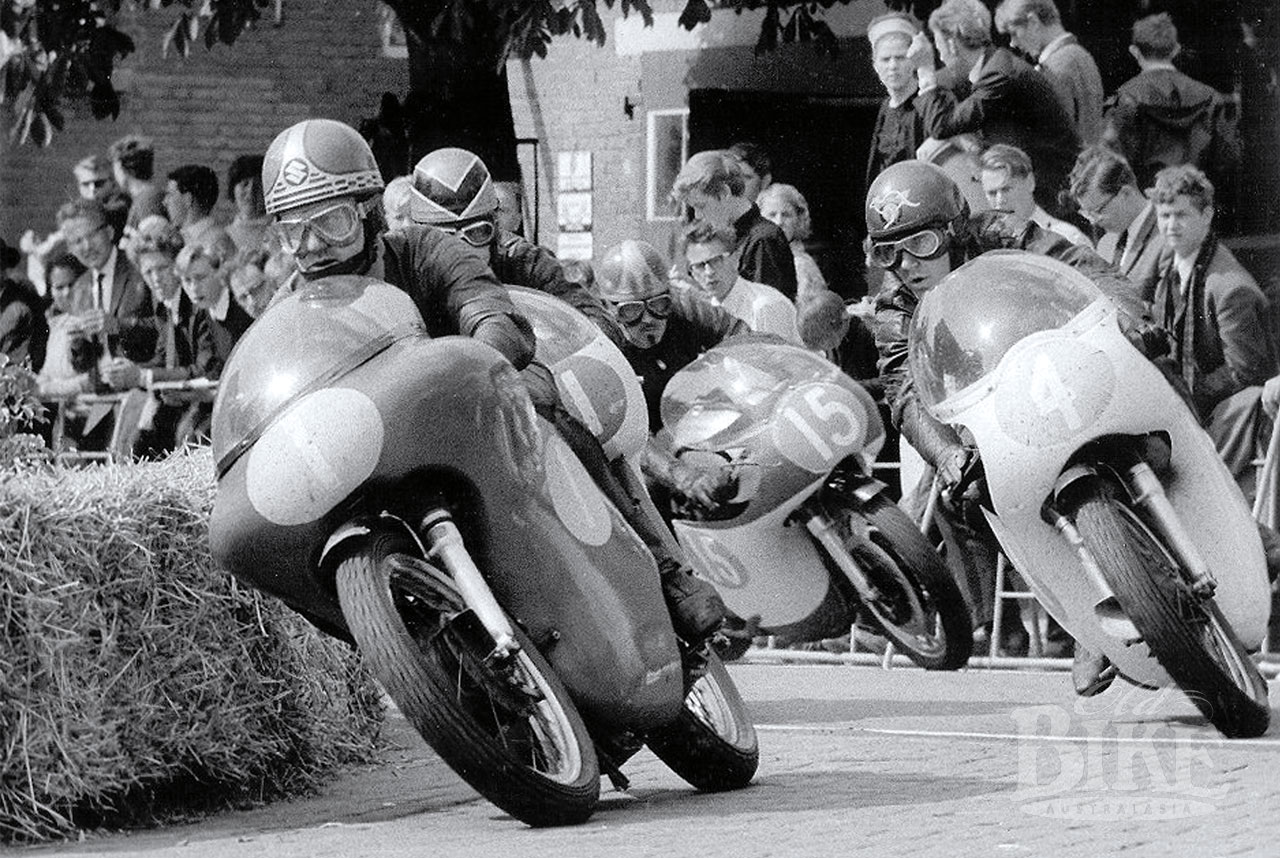
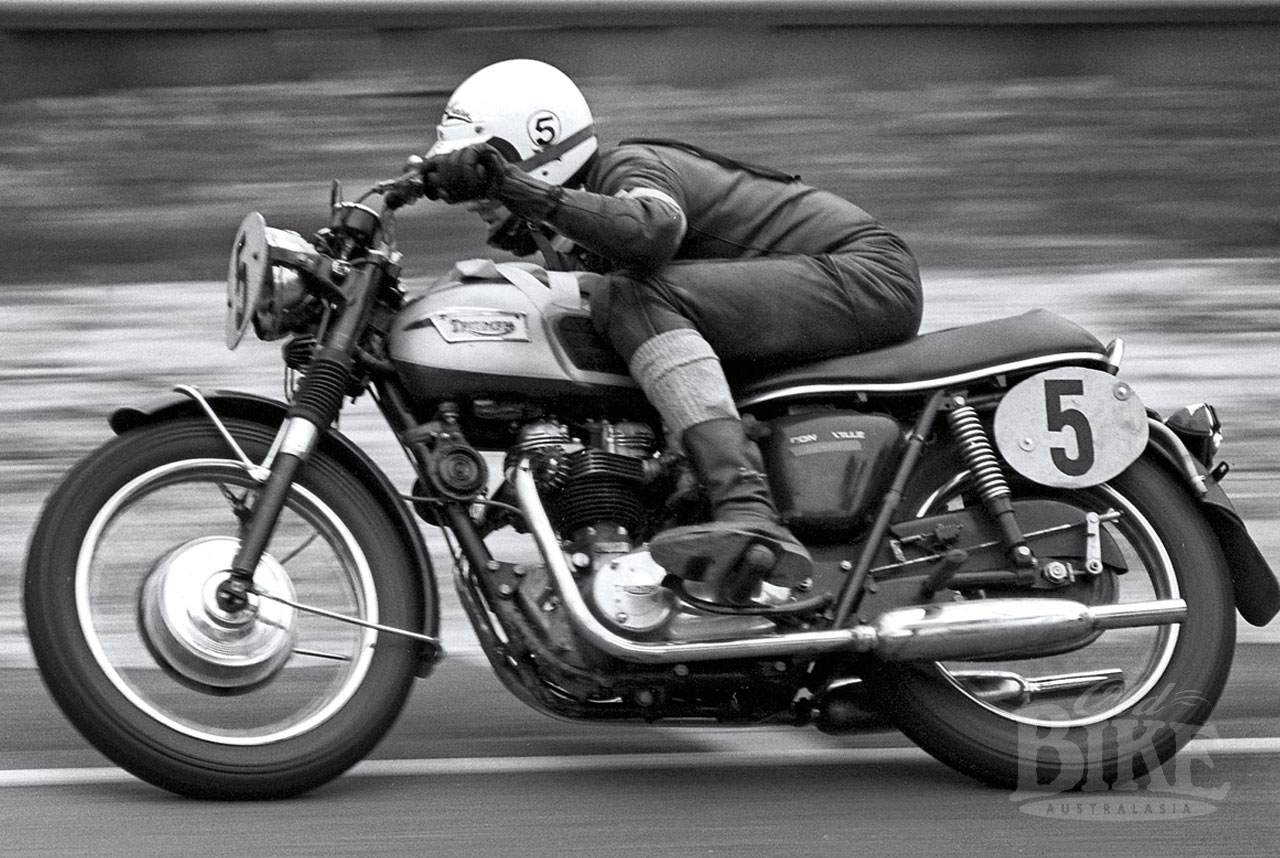
When the Production Racing boom began around 1970, Jack joined in, competing in the Castrol Six Hour race at Amaroo Park each year until 1974. That year, he entered a Norton Commando Interstate with Chris Mitchell as the nominated co-rider. He reckoned that the Norton’s ability to need only two fuel stops would be a factor at the finish, but he only made it to half distance, crashing out in spectacular fashion in Dunlop Loop. Jack maintained that he had momentarily blacked out, but whatever the reason, the crash was a big one and marked the final time he raced in Australia. Earlier in the same year, he had once again saddled up for the TT after a break of eight years, riding a 350cc Yamaha in the Junior TT and finishing 34th.
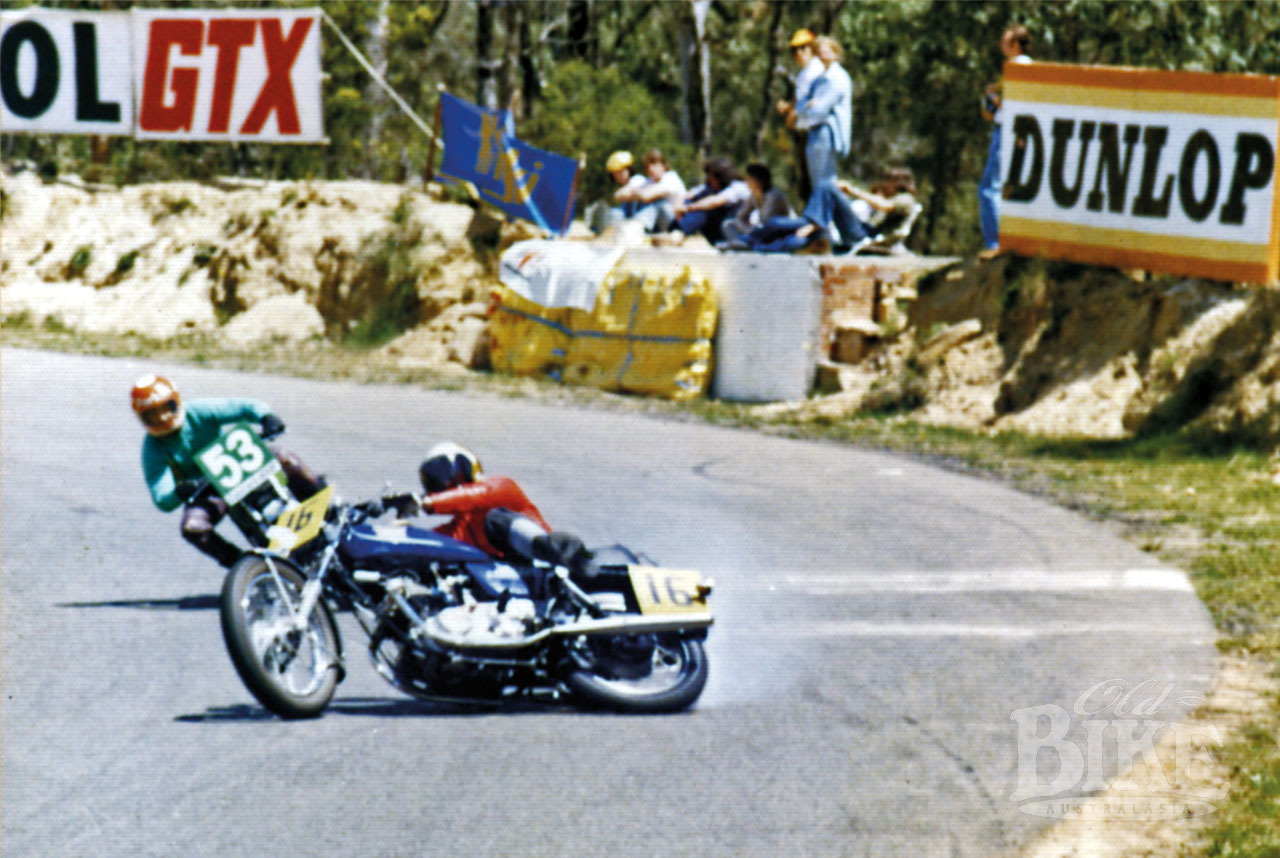
There was one final chapter left in Jack’s career. In 1975, he took a 350 Yamaha to the Isle of Man for Robert Madden to ride, and while he was there, accepted an offer from Honda dealer Bill Smith to ride a CB400/4, with John Kidson as co-rider, in the ten-lap Production TT (the opening race of the TT week) where they finished 24th outright. It was not a happy time however, as the new Honda leathers that had been provided for Jack were stolen, and according to Madden, “he spat the dummy big time and stormed off back to England, taking his tools and equipment with him.” Fortunately Chris Mitchell was also there, and in Jack’s absence, helped Robert to contest the 250cc and 350cc TTs. Back home, Jack took young star Ron Boulden under his tutorage, riding the same TZ350 Yamaha used by Madden at the TT.
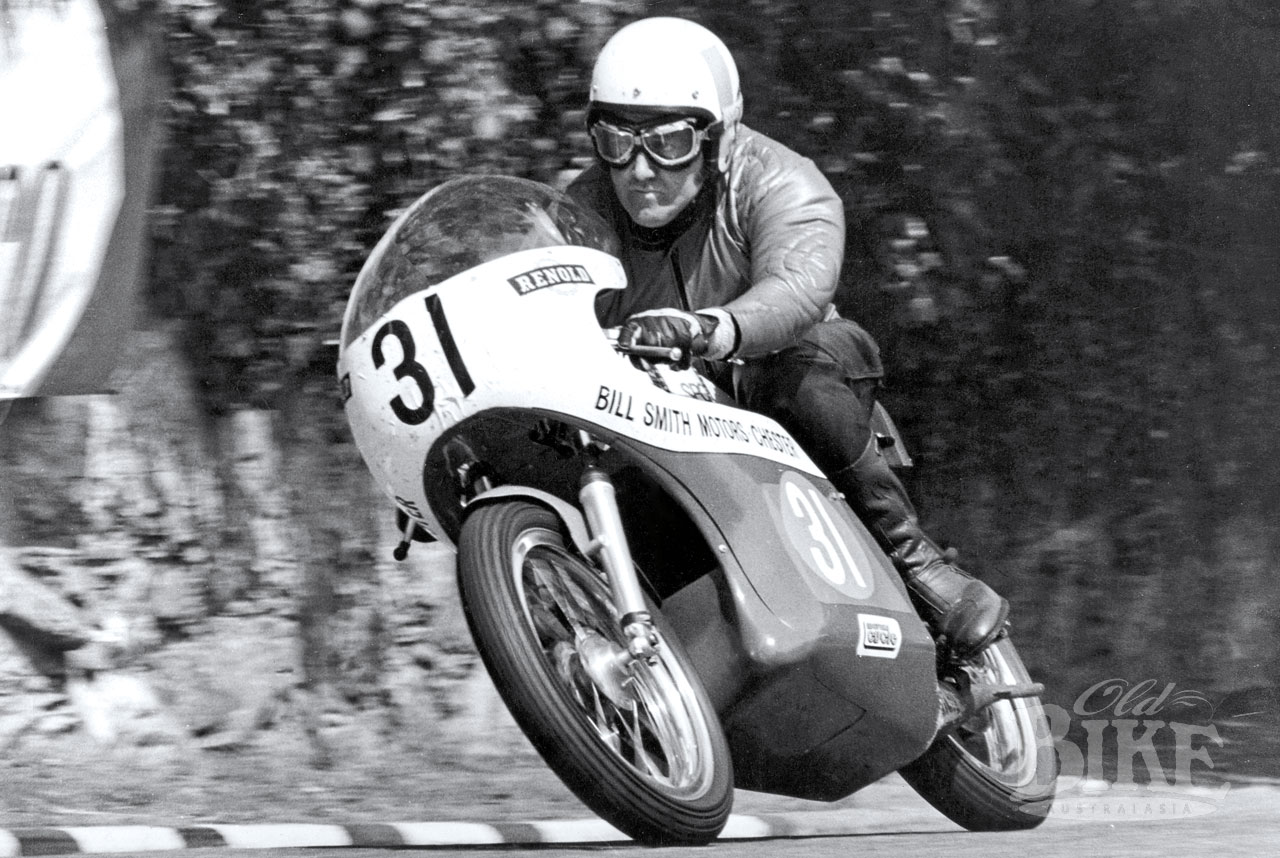
In 1976, Jack and Betty moved to Lismore in northern New South Wales, where they settled into a relaxed country life. Jack became patron of the local Northern Rivers Classic Club and bought himself a Honda 400/4 on which to attend the club’s rallies. In 1998, he was invited to the Assen Centennial Classic TT, organised by Ferry Brouwer, where he rode a Seeley G50 Matchless.
In recent years, Jack’s public appearances became fewer, but he continued his patronage with the NRCMCC up to his death. With the passing of John Cornelius Ahearn, one further link is lost to the heady days of the Continental Circus, where a decent result often meant little more than being able to buy enough petrol to get to the next race. In an era where violent death was part and parcel of race meetings, Jack survived virtually unscathed, and despite being a life-long smoker, lived to a ripe old age. He was farewelled by family and friends in Lismore on Tuesday 18th April, 2017.


